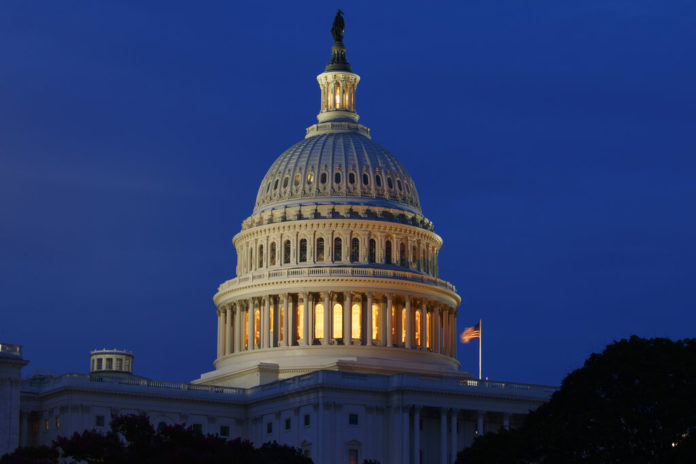
UNITED STATES (AP) — The U.S. budget deficit through the first three months of this budget year is up 11.8% from the same period a year ago, putting the country on track to record its first $1 trillion deficit in eight years.
In its monthly budget report, the Treasury Department said Monday that the deficit from October through December totaled $356.6 billion, up from $318.9 billion for the same period last year.
Both government spending and revenues set records for the first three months of this budget year but spending rose at a faster clip than tax collections, pushing the deficit total up.
The Congressional Budget Office is projecting that the deficit for the current 2020 budget year will hit $1 trillion and will remain over $1 trillion for the next decade. The country has not experienced $1 trillion annual deficits since the period from 2009 through 2012 following the 2008 financial crisis.
The actual deficit for the 2019 budget year, which ended Sept. 30, was $984.4 billion, up 26% from the 2018 imbalance, reflecting the impact of the $1.5 trillion tax cut President Donald Trump pushed through Congress in 2017 and increased spending for military and domestic programs that Trump accepted as part of a budget deal with Democrats.
The projections of trillion-dollar deficits are in contrast to Trump’s campaign promise in 2016 that even with his proposed tax cuts, he would be able to eliminate future deficits with cuts in spending and growth in revenues that would result from a stronger economy.
For the first three months of the 2020 budget year, revenues have totaled $806.5 billion, up 4.8% from the same three months a year ago, while government spending has totaled $948.9 billion, an increase of 6.3% from a year ago.
Both the spending amounts and revenue amounts are records for the first three months of a budget year. The deficit in December totaled $13.3 billion, slightly lower than the $13.5 billion deficit in December 2019.
As reported by Vos Iz Neias
